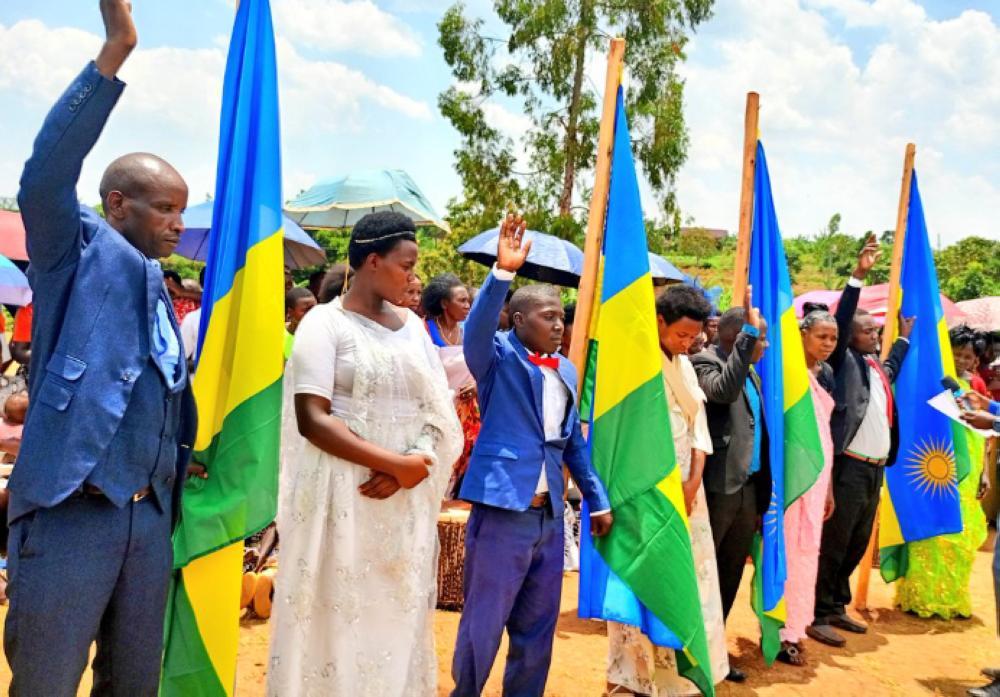Africa-Press – Rwanda. Some children suffer when one of their parents dies, and the surviving parent is entitled to full rights to own and use the entire property. But, a proposal in the draft law governing persons and family—once approved by parliament could address the issue, The New Timesunderstands.
Such cases of abuse have attracted public attention to protecting children’s rights after the death of one of the parents.
ALS READ: Why law governing family, persons was amended
Article 378 of the bill [proposed] which talks about succession modalities under the community of property regime, provides, among other things, that if one of the spouses dies, the surviving spouse ensures the administration of the entire property and fulfils the duty to cater for their children, the legitimate children of the deceased and provides assistance to the needy parents of the deceased.
However, for the best interest of the heirs (including children), the surviving spouse cannot dispose of [such as through sale or donation] more than half of the property, it added.
Also, it stipulates, that if the surviving spouse fails to fulfil his or her obligations to ensure the custody of some or all of the children left by the deceased, upon request of an interested person in the best interest of the children, the competent court orders the opening of the succession. The claim is filed in the form of summary proceedings—a mode of trial held before a judge without the usual full hearing for a speedy disposition of a matter.
Family bill: Govt proposes new matrimonial regime
According to the current law of 2016 governing matrimonial regimes, donations, and successions, in Article 76, if one of the spouses dies, the surviving spouse is entitled to the entire property and fulfils the duty to take care of their children and that of the legitimate children of the deceased.
Ninette Umurerwa, the Executive Secretary of Haguruka, a Rwandan NGO that works to defend and promote the rights of women and children, underscored the need to adopt the proposal in the bill, which seeks to change the current provision where a surviving spouse is entitled to the entire property and its use as he/she pleases.
She was speaking during a consultative meeting on the draft law governing persons and family which was organised by The Legal Aid Forum, on April 12, in Kigali.
“I realised that it is necessary to provide for that in the law. For us we proposed that he/she does not own the entire property, but rather properly manages it—including 50 per cent of it belonging to the deceased spouse—because he/she is also among the heirs,” Umurerwa said.
She told The New Times on April 15 that the move can ensure the security of the 50 per cent of the property belonging to the deceased spouse, and that it is not going to be sold, but rather be used in terms of protecting children.
For her, the current provision was negatively affecting children, giving an instance where in 2023, Haguruka took to court 12 cases of children who were denied their rights as their fathers were mismanaging property [after the death of their mothers], hence requesting the judge to rule in favour of inheritance for the children.
So far, she said, it won six cases which were deliberated on by judges.
However, information from Haguruka pointed to a concern that evidence such as notes left by deceased spouses stating their will for their property share to be given to their children, might be contested by the surviving spouses, or their admissibility might be rejected by judges because of the current provision.
Lawyer Alice Umulisa said that there are cases where a parent [a surviving spouse] sends her children to study in America while children belonging to the father go to study in nine year-basic education schools. This is in case the children were not born from both of the spouses.
She also suggested that the bill should provide that the remaining 50 per cent be protected for the benefit of all heirs.
“So, we should not disregard the reality; either a woman or a man, we both have shortcomings and qualities. It should not be the case that when someone remains with the property of the family, he/she excludes other children.
During a session in which the Lower House’s Committee on Political Affairs and Gender was scrutinising the bill, on April 4, the Minister of Gender and Family Promotion, Valentine Uwamariya, said that it was observed some spouses sold the entire property after the death of their partners, yet they still have children, which makes them suffer as a result.
She added that there are instances where individuals illegitimately marry others who are after their property, deceiving them and causing the property to be lost to the detriment of children.
“The surviving spouse has the right to property, but he/she is not allowed to completely dispose of half of it so that the children are also protected. This is what the draft law provides,” Uwamariya said.
For More News And Analysis About Rwanda Follow Africa-Press






